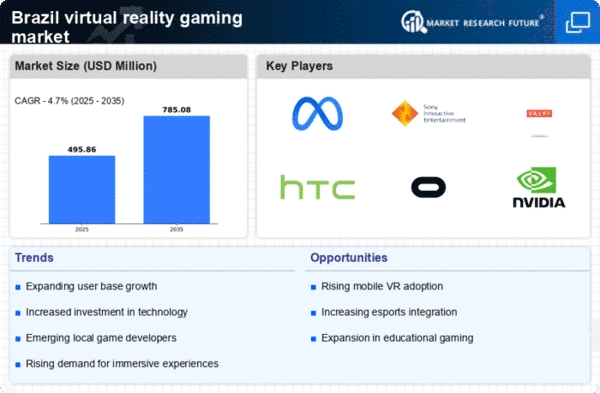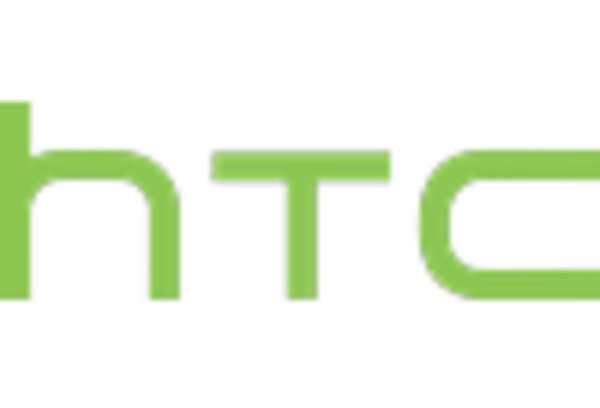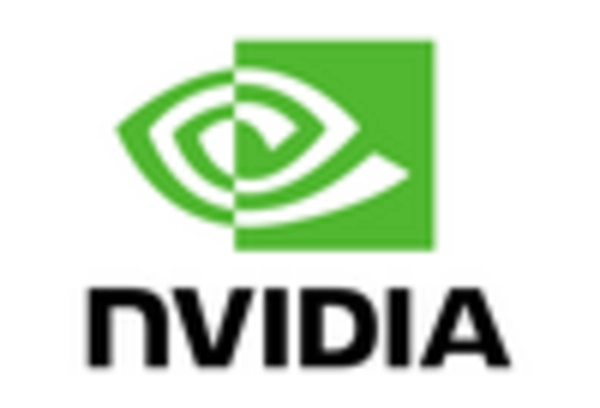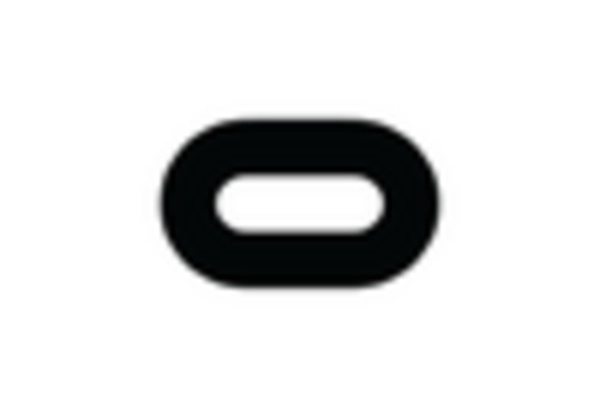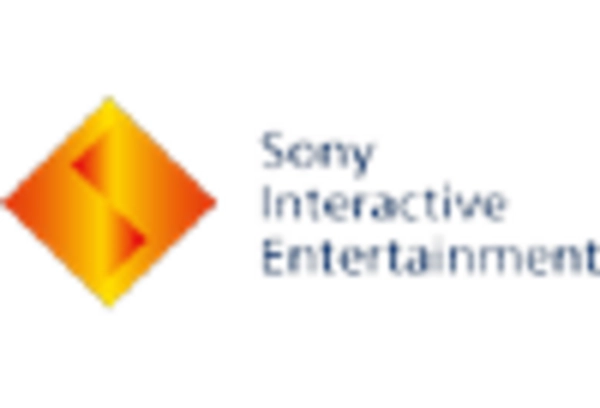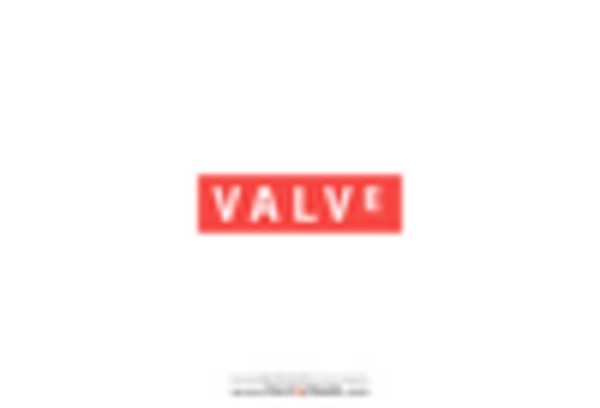Growing Interest in Immersive Experiences
The virtual reality-gaming market in Brazil is witnessing a notable surge in interest for immersive experiences. This trend is driven by the increasing availability of high-quality VR content that captivates users. As of 2025, the market is projected to grow at a CAGR of approximately 25%, indicating a robust demand for engaging gaming experiences. The rise of local developers creating culturally relevant content further enhances this interest, as players seek games that resonate with their experiences. Additionally, the proliferation of VR arcades in urban areas provides an accessible entry point for new users, allowing them to experience VR gaming without the need for expensive equipment. This growing interest in immersive experiences is likely to propel the virtual reality-gaming market forward, attracting both casual and hardcore gamers alike.
Technological Advancements in VR Hardware
Technological advancements in VR hardware are significantly impacting the virtual reality-gaming market in Brazil. Innovations such as improved graphics, enhanced motion tracking, and more comfortable headsets are making VR gaming more appealing. As of November 2025, the average price of high-quality VR headsets has decreased to around $300, making them more accessible to a broader audience. Furthermore, the introduction of wireless technology and lighter materials has improved user experience, allowing for longer gaming sessions without discomfort. These advancements not only attract new users but also retain existing gamers who seek the latest technology. The continuous evolution of VR hardware is expected to drive growth in the virtual reality-gaming market, as consumers are increasingly drawn to cutting-edge gaming experiences.
Expansion of E-Sports and Competitive Gaming
The expansion of e-sports and competitive gaming is emerging as a significant driver for the virtual reality-gaming market in Brazil. With the increasing popularity of e-sports, many developers are exploring VR as a new frontier for competitive play. Tournaments featuring VR games are gaining traction, attracting both participants and spectators. As of 2025, the e-sports market in Brazil is estimated to reach $50 million, with a growing segment dedicated to VR gaming. This competitive aspect not only enhances the appeal of VR games but also fosters community engagement among players. The rise of e-sports in the virtual reality-gaming market could potentially lead to increased investment in game development and infrastructure, further solidifying Brazil's position in the global gaming landscape.
Cultural Shifts Towards Digital Entertainment
Cultural shifts towards digital entertainment are significantly influencing the virtual reality-gaming market in Brazil. As more individuals embrace technology for leisure activities, the demand for innovative gaming experiences is on the rise. The younger demographic, in particular, is increasingly drawn to VR gaming as a form of entertainment that offers unique and interactive experiences. Surveys indicate that approximately 60% of Brazilian gamers express interest in trying VR games, highlighting a shift in consumer preferences. This cultural transition is further supported by the integration of VR gaming into social events and gatherings, where friends and family engage in multiplayer experiences. Such cultural shifts are likely to drive the virtual reality-gaming market, as developers respond to the evolving tastes and preferences of Brazilian consumers.
Increased Investment in Gaming Infrastructure
Increased investment in gaming infrastructure is playing a crucial role in the growth of the virtual reality-gaming market in Brazil. Government initiatives and private sector investments are aimed at enhancing internet connectivity and accessibility to gaming facilities. As of November 2025, Brazil has seen a 15% increase in broadband penetration, which is vital for online VR gaming experiences. Additionally, the establishment of gaming hubs and VR lounges in major cities provides gamers with access to high-end equipment and a community space. This investment in infrastructure not only supports existing gamers but also attracts newcomers to the virtual reality-gaming market. The improved infrastructure is likely to facilitate a more robust gaming ecosystem, fostering innovation and collaboration among developers and players.

